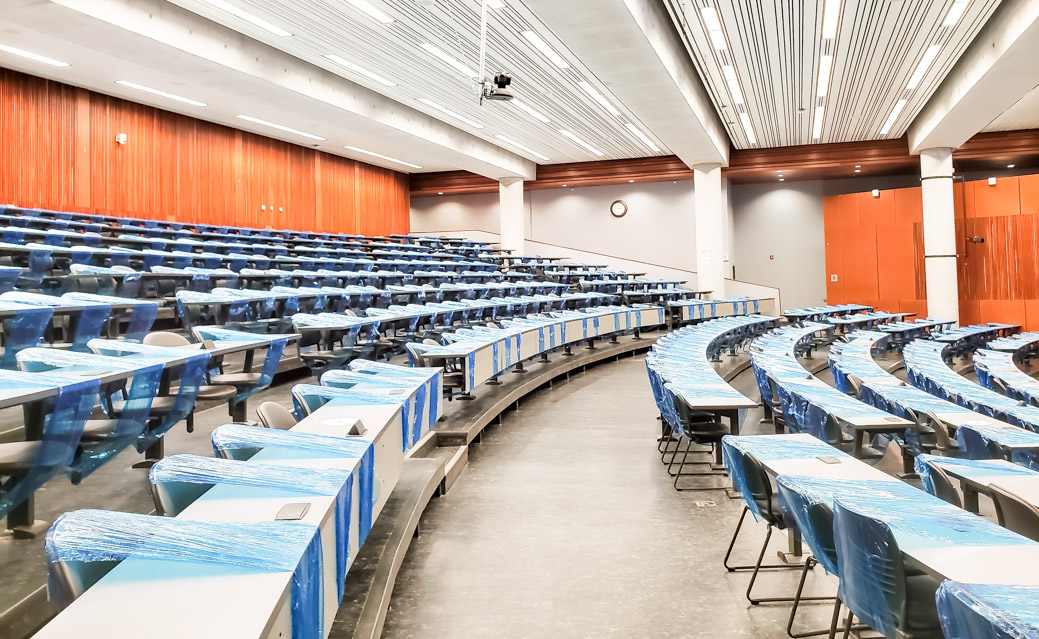How international students really feel about returning to campus
Students share what it was like studying virtually from abroad and what they hope for the next semester.
Names have been omitted to protect anonymity.
Earlier this month, University of Toronto Mississauga (UTM) confirmed most winter courses will be offered in-person. After almost two years of Zoom university, this announcement is reason for celebration. A return to in-person learning means that students will get the proper university experience. Still, many of us have valid concerns about this return and how safe it will be. But what if you are not even in Canada? Is this decision mindful of the difficulties international students face when coming to campus?
When I got accepted to UTM last year, the visa center in my city was closed. I applied for my study permit online in June 2020 and my application was only approved in July 2021. The pandemic caused visa appointment cancellations and repeated medical examinations frequent. Not knowing when my study permit would be approved triggered additional anxiety and frustration during my first year of university.
The hurdles international students face are known. They not only pay higher tuition fees, but may also experience homesickness, culture shock, and even discrimination. When students had to scramble back to their home countries, they also had to reprogram themselves to function according to the Eastern Time Zone, without knowing how long they had to stay that way.
“I feel the return to in-person classes for the winter was extremely rushed,” says a third-year transfer student from Brazil. They share that the anxiety and stress that came with the sudden announcement negatively impacted their academics. The process of finding housing and understanding the renting system was stressful, especially in a country they’ve never been to before, since they couldn’t know whether the place they found is good or not and whether it is near or far from campus. House hunting is stressful enough for those of us here, but imagine what it’s like for those that have never set foot in the country.
A third-year transfer student from Brazil shared that the rise of the new Omicron variant makes them especially nervous to travel. “At first, I was excited to come and finally get the full university experience. Attending classes from another country negatively impacted my anxiety. I felt somewhat lost when professors talked about campus and Canada, and because I haven’t experienced it yet, I felt like an imposter. Although I was in the comfort of my home, I felt divided. But when I started considering all the factors like finding housing and flying to Toronto, I became more worried.”
At the moment, it feels like a punishment to be an international student. Along with the reality of navigating the weird headspace of being in two places at once yet finding belonging in neither, another challenge international students face when coming to Canada concerns the Covid-19 vaccines themselves.
A second-year student from Pakistan said in regard to vaccinations that “the Canadian government recognizes specific vaccines to be exempt from quarantine, and getting the Canada-approved vaccine again after already being vaccinated messed up my semester. I was so sick and still, I had to complete my schoolwork.”
When asked about what they wished the university did differently, most students expressed a desire for dual-delivery learning.
“While it might not be the best option for all, I wish there was dual delivery for us who can’t come to campus. I applied for my study permit, and it was approved, but there is some uncertainty with the status of my eTA (electronic travel authorization) that might prevent me from travelling to Toronto and I can’t know if I can arrive to campus for sure until I’m about to enter Canada. It’s not up to us. It’s up to what governments say and what immigration says in each country,” shares the student from Mexico.
Considering how large the international student population is at UTM, they shouldn’t be rushed to return to Canada because of the university’s eagerness to return to in-person learning. An online petition launched recently calls for this decision to be reconsidered, urging the university to consider how the circumstances beyond international students’ control impact their ability to attend in-person classes next semester and for these to be accommodated through the dual-delivery course offerings. Sure, there is a leave of absence policy for us, but not everyone can provide the documents they need because those documents may not exist, or, there are other factors that play into their inability to travel. It may not be ideal to continue to offer online courses, but at least it ensures that all students can continue their studies during the uncertainties of the pandemic. If not a reconsideration, then at the very least the university should create accommodations like dual delivery.

